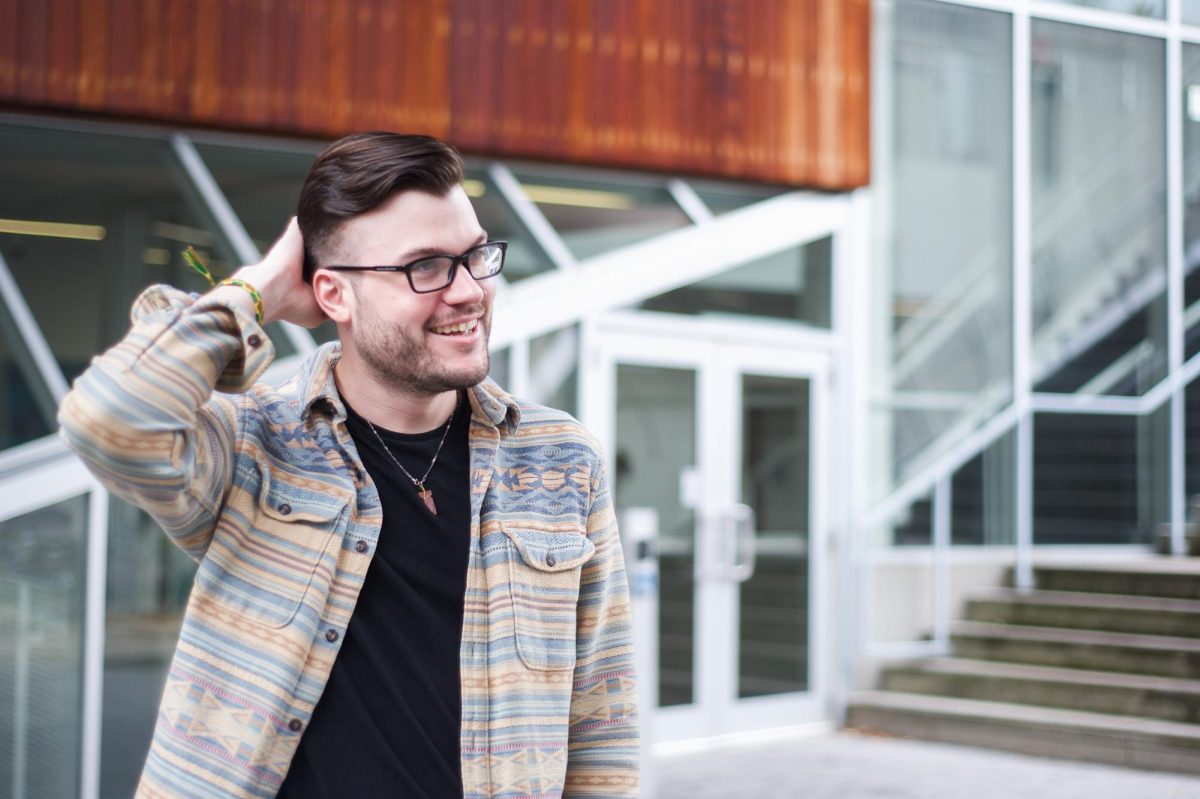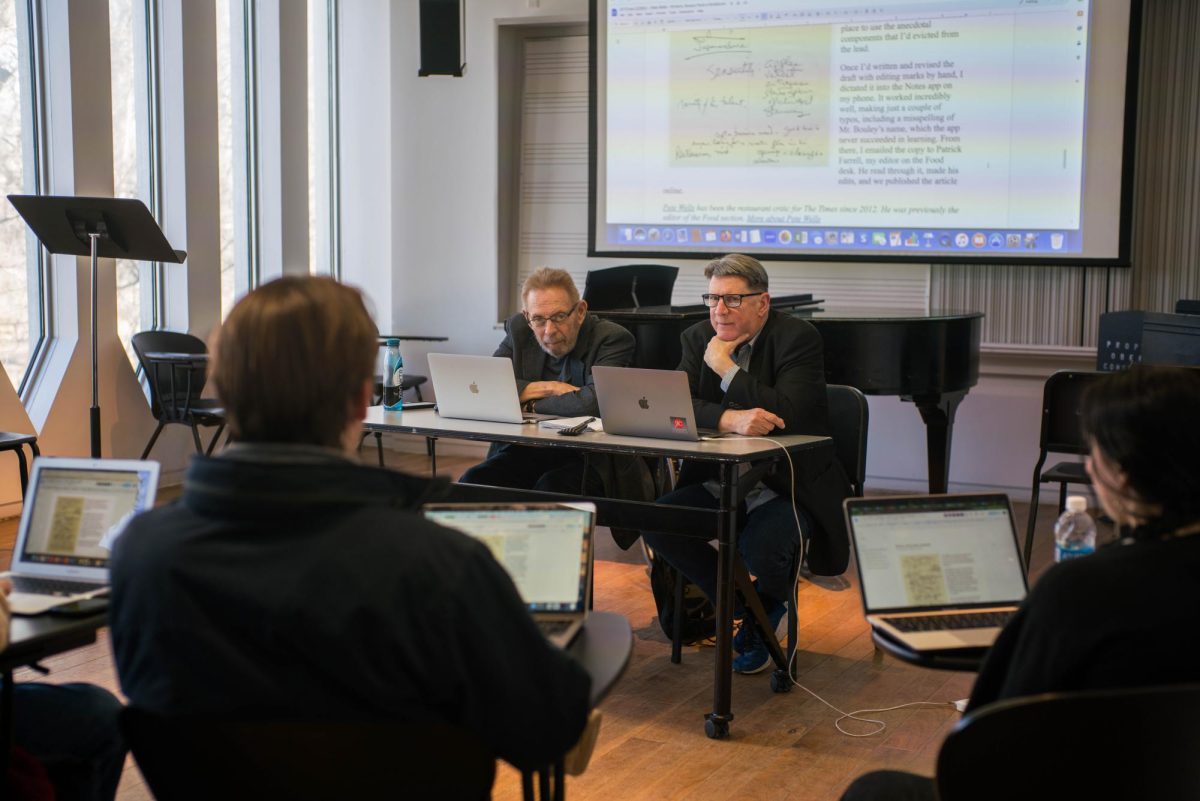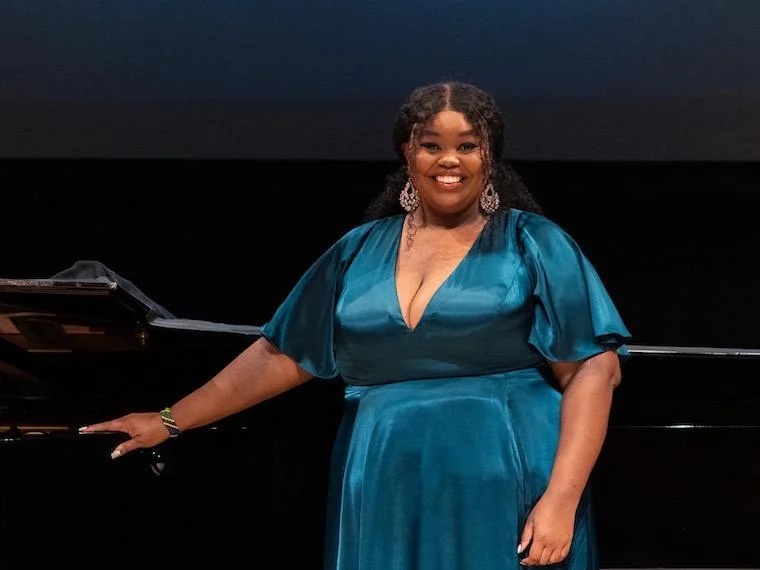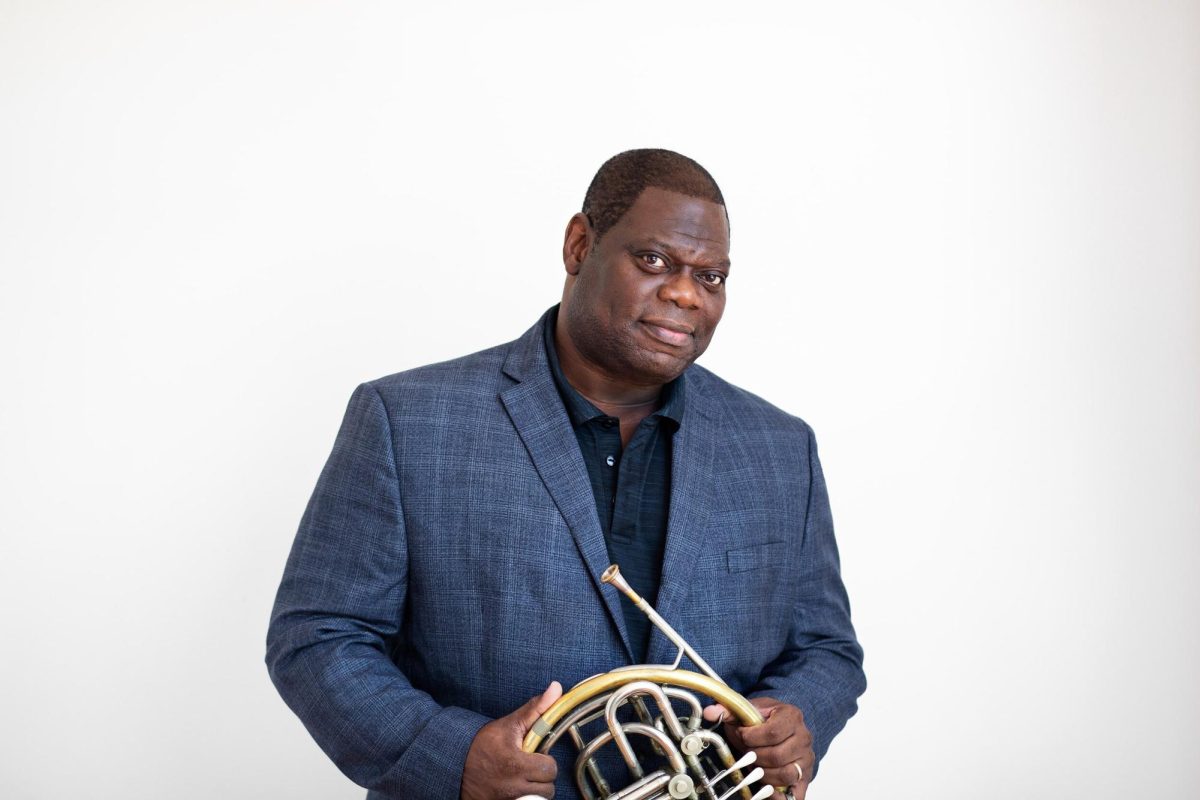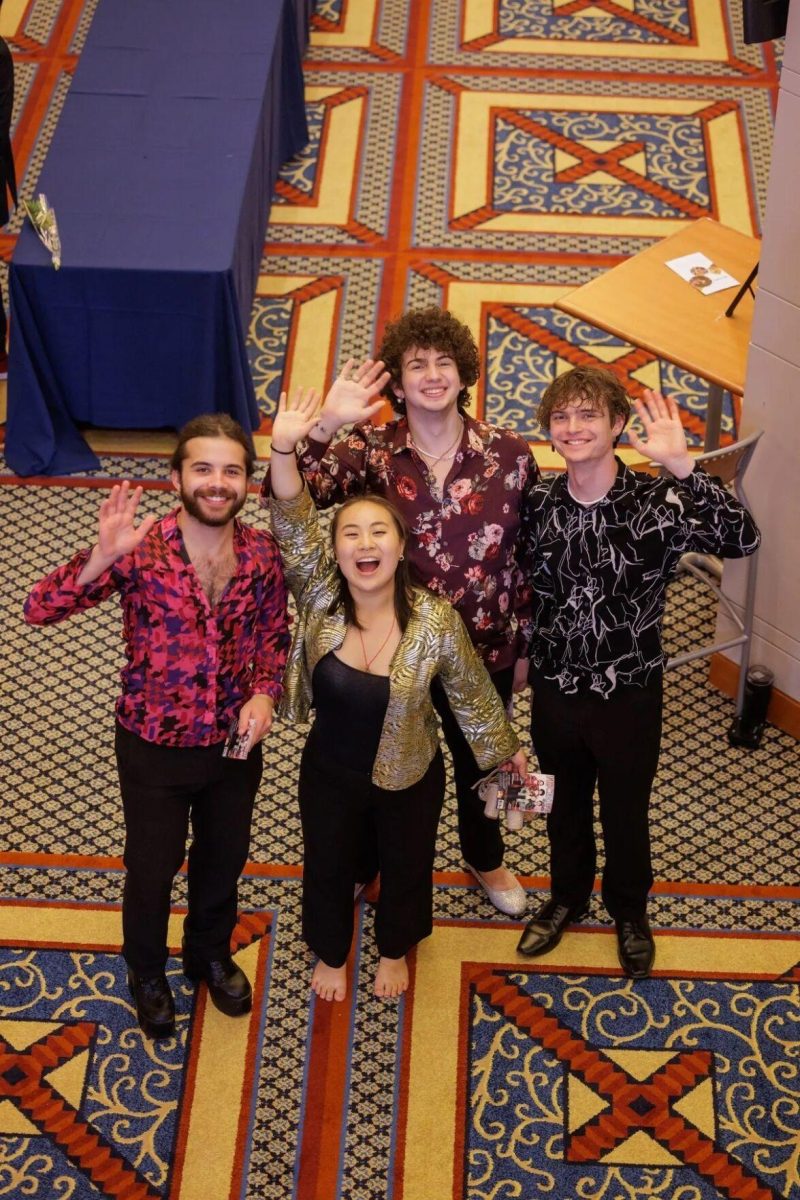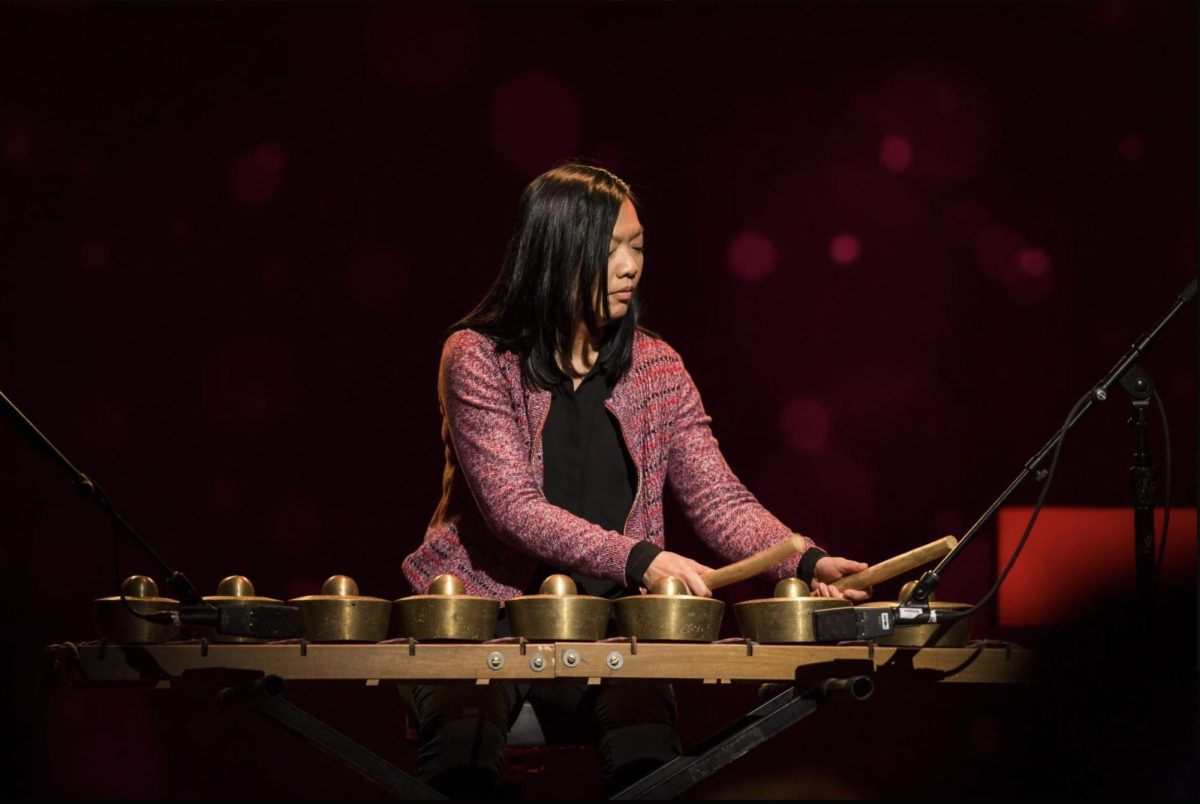Sammy Gardner is a visiting assistant professor of Music Theory. Gardner has done extensive research in music cognition and psychology and brings this research into the classroom at the Conservatory. Gardner is teaching Aural Skills III and Large Forms this semester, as well as the relatively new Music and the Mind course that will be offered in spring 2024.
This interview has been edited for length and clarity.
When did you first get into music cognition studies? Why?
I’ve always been into music. My parents were rock ’n’ rollers; they named me after the singer from Van Halen. Eventually, I found myself in college, and I hated it. I didn’t like my theory classes, didn’t like any of my music classes, and I felt like it didn’t help me, didn’t explain why I enjoy music. I’m a pretty voracious reader, and as I discovered music cognition literature, I found that it was the best description of how I was experiencing music. At music school, I had no one to talk to about the music I was interested in. Everyone was like “Beethoven and Bach, the gold standard.”
I suppose, in some sense, I probably should have done a Ph.D. in psychology or neuroscience, but I’m really committed to the humanities. When you work in a humanities department, rhetoric matters. What you say matters. While I am deeply an empiricist and run experiments, how we present that to people is really important. I’m trying to persuade people that there’s a lot more to music than we think, and it can encapsulate a lot more styles of listening than we think. I started to feel a bit more at home with myself through studying music and cognition — I’m not as different as I was made to feel.
What has your research consisted of?
For my doctorate, I was focused on how our hands help us and others think about music. I put myself in motion capture suits, made gestures, and asked the participants questions based on this avatar that was created. I found that, when performing, people develop specific musical expectations depending on those movements. It’s still heavily enculturated, however; it only really works with diatonic music, not with any other styles of post-tonal music.
This other track that I’ve been taking lately is concerned with how people process music and some of the differences in how they think about music depending on their background and situatedness. Andrew Goldman, assistant professor of Music Theory at Indiana University, found that people with improvisational skills are more willing to be flexible with traditionally out-of-place harmonies, whereas people without that training are more rigid in how their brains process chord changes.
I’m currently running another experiment with bigger gestures to see if the magnitude of the gestures matter. And why is this research important? Because I like to go to concerts. I like to see people on stage and people acting in really specific ways. In what ways does that influence our perception of music?
How are you incorporating music cognition research into your own curricula?
I have to take a lot of different approaches when I teach a class. If someone isn’t getting something, it’s because they just have a different musical diet. I ask myself, “How can I take what they’ve built their expectations on and get them to where they want to go?” In terms of the classroom, what if we can use our hands to help sing and dictate melodies better?
If you take my Music and the Mind class in the spring, we spend the first two weeks talking about positionality. Basically, who’s conducting the research and who’s being studied? Most people that are being studied, not just in music, but in psychology in general, are late teenagers: college-age kids from the West who are doing it for course credit. That’s a heavily biased sample, so we talk about what more inclusive data might look like and the ethics behind music cognition studies.
In Music and the Mind, we also talk a lot about monkeys and babies, and that tells us about what aspects of music are evolutionary. One of the big arguments for the origins of music is that it’s for social bonding, but there’s much more to it than that. Monkeys can be trained to recognize octave equivalents at one octave, but not at two octaves, and they can’t do any other intervals. Babies value contour more than specific interval relationships for a while, and that lasts until about age seven. At that point, they start to really value specific interval relationships in order to differentiate the music they are hearing.
Why is scientific research important, particularly in the context of studying primarily Western theory at a conservatory?
Once you’re looking at music cognition research, particularly from a bird’s-eye view, you start to see how incredibly specific music theory is in a Western context. The development of musicality is so different for a lot of cultures, and it gets different really, really fast. It’s okay to study one genre of music, but there’s a lot more out there. We become better citizens of the world around us when we listen more, and research can help us do that.
What classes do you wish to teach in the future? Are there other research questions that you are interested in pursuing?
I would really enjoy teaching a specific cognition and performance class where people show up with their own repertoire. We do a lot of reading and we find ways to play pieces in a way that’s most well received — basically, how can cognition directly influence your performance with the repertoire you’re already doing? It would be a very active class, a class on empirical musicology.
For my own research, I am very blessed to be at Oberlin. I get to work with some really cool students. There’s a couple experiments in the pipeline that I won’t say because it will ruin the hypothesis testing, but just in general, I love to research. It’s a vehicle for shared understanding. Research to me is less about sitting in a library and reading books and more about working with other people. We learn more about everyone around us when we start asking questions together.


